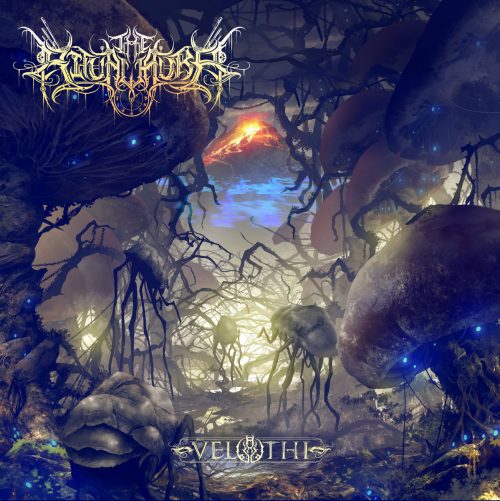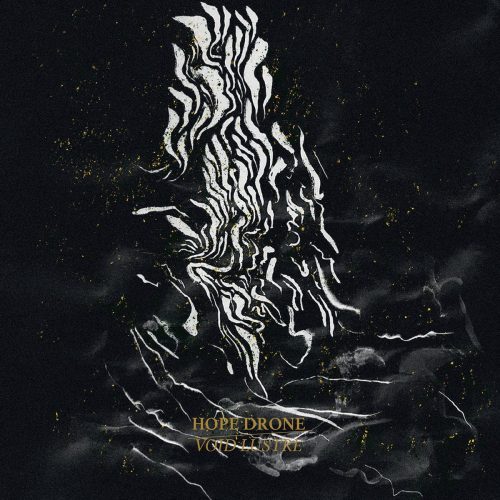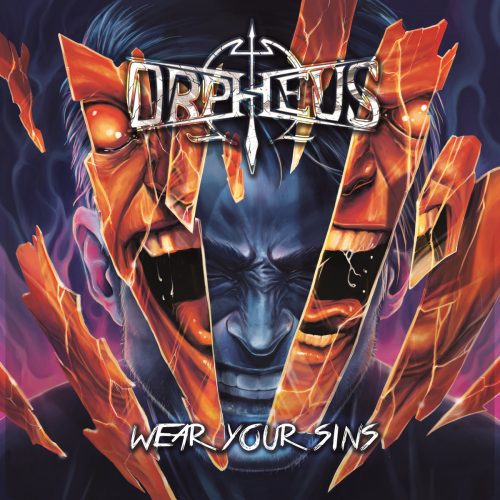(NCS scribe DGR is catching up on reviews after a long hiatus with a multi-part collection, of which this is the second of three parts.)
This was not intended to be the Australia segment of this roundup when I started. In fact, as I found myself bouncing around this whole archive of intended reviews, the ones I cut out to send off to the teeth machine that is this website kept lowering these down while I was adding to them, until I had the three resting on top of each other, much in the same way a puzzle game will collapse pieces on top of each other in unplanned fashion.
While I mentioned earlier that this archive has found itself both swelling and shrinking in size as the year has gone by, and even as some other writers were kind enough to pick up some of the releases I had been hoping the site would cover, these three managed to stay pretty firm in their places while we waited for their release dates to hit.
For the most part, they were always on the radar screen. It just so happened that two of them would release in close proximity to one another toward the later part of the year and the third is one of those that is strictly in this writer’s wheelhouse and basically found itself spoken for before anyone else could even get the chance to call it.
The Ritual Aura – Velothi
It seems crazy to say this, but the very first time I wrote about Australian tech-death crew The Ritual Aura‘s latest album Velothi was way back on June 27th, 2017, when the album was intended to be an EP, only two songs with twenty minutes worth of music, and only a teaser available for it.
Two years and almost three months later, here we are now with a twenty-nine minute album that grew massively in scope with the two songs having evolved into two distinct multi-part movements (“Sunder” and “Keening”), with the addition of another vocalist to the band’s ranks, and a section of guest musicians that is pretty extensive. Not bad at all for a tech-death album based upon the lore of Morrowind.
The path The Ritual Aura have charted over the years is interesting, as it has resulted in a sort of diamond-shaped collection of music, with the group’s very first album punching in at around twenty-five minutes, the group’s second disc expanding way the hell out there into two discs and an hour and eleven minutes, and now Velothi, which clocks back in at a compact twenty-nine minutes. Of course, “compact” is a relative term because this is The Ritual Aura and, as The Ritual Aura are want to do, the music on Velothi is fucking dense.
Which, upon deeper reflection is a hilarious thought, because the first couple of spins of Velothi went by blindingly fast, a hyper-complicated tornado of sound that somehow managed to pick up a local orchestra’s string section and then fling it over into the next county. Part of this can be credited to the group’s writing style, which sees the band themselves moving with deftness across multiple songs — bassist Darrin Joy and both guitarists Levi Dale and Brandon J. Iacovella pull off some jaw-droppingly agile maneuvers with their instruments, and the result is that many of the songs just seem to come spilling forth, bringing a torrential downpour with them and dragging not only the band but also its many, many guests with them in its floodwaters.
Velothi contains a multitude of outside contributions during its two songs: drummer KC Brand sits behind the kit and finds himself joined by guest performers of piano, viola and violin, erhu, flute, and by some more expected guest guitar, guest vocalist, and guest bass work to complete the whole picture. At times, The Ritual Aura are almost overwhelmed by their own ambition in the mix, with their classical string section dominating their own death metal hammering. At other times the all-out assault just slots perfectly into place, resulting in that absolutely massive feeling that The Ritual Aura likely were aiming for even when this was initially conceived as a big two-song EP.
Of course, Velothi’s DNA initially does make itself apparent. Which is how those first few spins result in a surprised ‘Holy shit, that was quick’ sort of reaction. After watching this EP take delay after delay, I would’ve guessed that it would be so packed with music and overlong songs that it could rival Inferi’s ‘everything, kitchen sink, and whatever the guy down the street has as well’ style of hyperspeed death metal songwriting — which I’ll fully own up to enjoying.
Yet The Ritual Aura keep their initial stated goal in sight, and so you wind up with an impressively tight and ambitious (at times dominated by its own ambitions) tech-death album that is far more lofty than what might initially appear. It also means that The Ritual Aura now find themselves three albums deep, with three very distinct sounds, and an impressive collection of writing to span all three.
BANDCAMP:
https://theritualaura.bandcamp.com/album/velothi
FACEBOOK:
http://www.facebook.com/theritualaura
Hope Drone – Void Lustre
With their first album Cloak Of Ash in 2015, Australia’s Hope Drone asked a lot of their listeners with the opening song, “Unending Grey”. At twenty minutes of hefty atmospheric black metal, it cast the band as a group of desperation-laden figures surrounded by an almost neverending cloud of smoke. This carried on for an album that pushed at the limits of just how much material they could fit on a disc — an hour-and-seventeen across only seven songs.
It was an immense undertaking that came with a lot of preparation and caveats when listening, the main one being to bring along some snacks and water so you didn’t starve during the journey.
Four years later Hope Drone return with Void Lustre, and once again we find ourselves at the precipice of an immense undertaking. Void Lustre has only five songs, but they collectively have a run-time of close to an hour and four minutes. But just because there’s a shorter run-time does not mean that the band have made a massive shift in sound. Instead, they have gone the route of condensing and tightening up on some already pretty well-proven and focused songwriting.
It still sounds very much like the sheer desperation of Hope Drone, but this time around the band are pulling even more different styles into their already overwhwelming cacophony — adding elements of sludge and groove, and veering straight into doom territory from time to time. Musically, Void Lustre comes across just as hungry and despairing as ever, but this time it’s also mean and miserable as all hell.
Shrouding themselves deep in a layer of noisy fog, Hope Drone spend Void Lustre crafting a dreamlike hellscape of sound, rumbling through the five songs with zero concern for anything around them. The moments of silence come as respite, because each momentous passage for the band is a storm of music with nearly every instrument getting railed on or blasted to bits, while Hope Drone‘s vocal work howls over the top of it all.
Void Lustre sounds like it was recorded deep within the recesses of a cavern. And the band write the sort of music to match that, either by attempting to drown their listeners in a massive wave of sound or sounding like they are drowning within it as well during the album’s brief moments of quiet.
The record is a lot like its predecessor, in that it’s hard to pick out a specific and distinct single. Instead, it is one of those discs you really have to gird yourself for and then dive in fully, emerging an hour later disoriented and haunted by the experience.
Does that mean there aren’t specific highlights? No. Opener “Being Into Nothingness” makes it very clear just how mean this album will be, with some heavy grooving in addition to the band’s atmospheric misery, and while “This Body Will Be Ash” feels like a thirteen-minute callback in order to tie in Cloak Of Ash to this album, it remains one of the more intense experiences on a disc for which intensity is one of the defining factors.
With a four-year gap between Void Lustre and its predecessor, the new one does deal in subtle shifts. It is still largely recognizable as a very atmospheric post-black album, and Hope Drone have quickly demonstrated an expert mastery of the style during their young career. It adds to an already impressive mass of material and provides them with another disc that is best defined as a journey to undertake, more than just a basic enjoyable listening experience.
If you’ve found yourself enjoying the recent explosion of atmospheric and post-black metal hybrid releases, then Void Lustre is the sort of album you absolutely should not sleep on.
BANDCAMP:
https://hopedrone.bandcamp.com/album/void-lustre
FACEBOOK:
http://www.facebook.com/HopeDrone
Orpheus Omega – Wear Your Sins
It’s been four years since we touched base with the keyboard glory of melodeath group Orpheus Omega. In fact, at the time the band were kind enough to let us premiere their album back then. Four years later and the group have returned with a new disc entitled Wear Your Sins.
Given the theme of ‘timeliness’ in this review archive, that means they actually returned about six months ago, in late-March, and I only found out about it upon checking in with the band out of curiosity in June, right about the time my personal life decided to torch just about everything.
It’s interesting to hear how a group like Orpheus Omega has evolved over the years. It seemed like the band had really nailed down their so-sweet-it-makes-your-face-collapse style of keyboard and guitar shred on 2015’s Partum Vita Mortem. So we might have predicted that where they went from there would either feel incredibly different or become an iteration on what they clearly know best. But Wear Your Sins draws a middle ground between the two.
The new album sees the band reaching outside their chosen melodeath sphere into more common groove-metal and -core elements, but at the same time they’ve really honed in on their wall-of-notes shred expertise, giving Wear Your Sins a hefty amount of ‘glory chorus’ and cheeseball moments to offset Orpheus Omega‘s heavy gallop.
The results equal out to some serious mood-whiplash. Wear Your Sins takes the ‘collection of single songs’ route versus having one singular auditory mood throughout. There are definitely reliable staples throughout. In fact, in the first four songs tracks like “Lighthouse” and “When Hope Gives Way To Reason” have Orpheus Omega firmly in their comfort zone. But a song like “Suffer”, which has the band experimenting in a much more groove-leaden and heavy direction, breaks up the flow a bit, even though the song is crushing, with its dextrous guitar part defining the main melody of the track.
This happens a couple of times during the album. The band reach into a variety of melodeath and metalcore subgenres this time, and that’s how the disc can swing so wildly from the almost radio-rock opening of “Insinerate” to a hefty machine-like groove nearly a minute later, and then during its chorus break out their not-often-used clean singing in order to punctuate a faster segment. And then they open the following song with an almost Viking-metal blastbeat segment before becoming a more familiar guitar and keyboard romp.
As you’ve probably gathered by now, Wear Your Sins isn’t quite as smooth a ride as its predecessor was, and it isn’t as laser-focused on its objective either. It gives Orpheus Omega an opportunity to spread their wings a little, and although the music doesn’t quite stick 100% of the time, it is still an expert delivery of the sort of candy-like sweetness that I come to the genre for.
It’s definitely lighter fare than everything else in this roundup, but the world doesn’t need to be on fire 100% of the time musically; I get enough of that from reality as is. Like the other records in the Orpheus Omega discography, the songwriting here is not only heavy but also surprisingly fun, even if Wear Your Sins is a little more all-over-the-place than what has come before.
BANDCAMP:
https://evp-recordings.bandcamp.com/album/wear-your-sins
FACEBOOK:
https://www.facebook.com/orpheusofficial/






